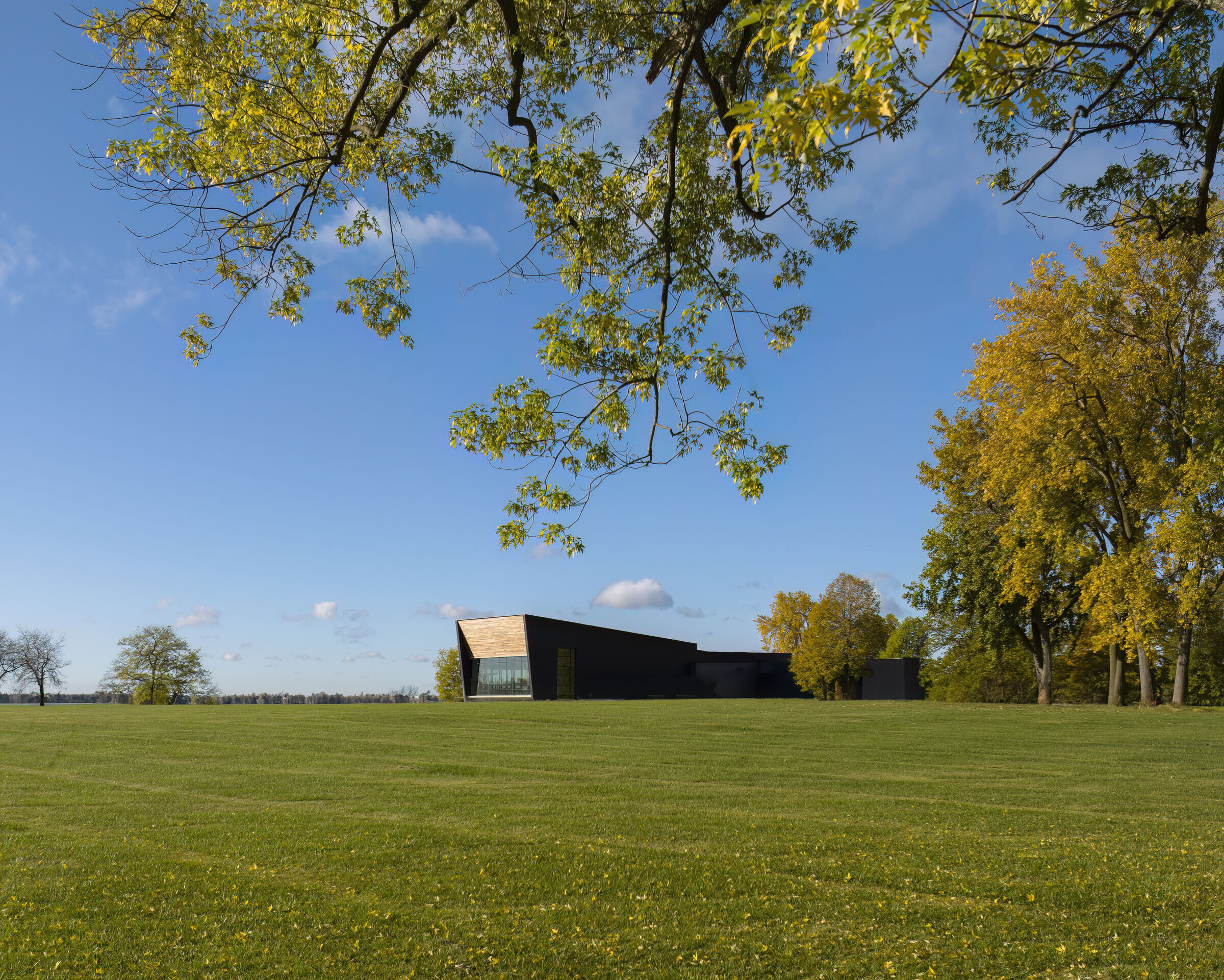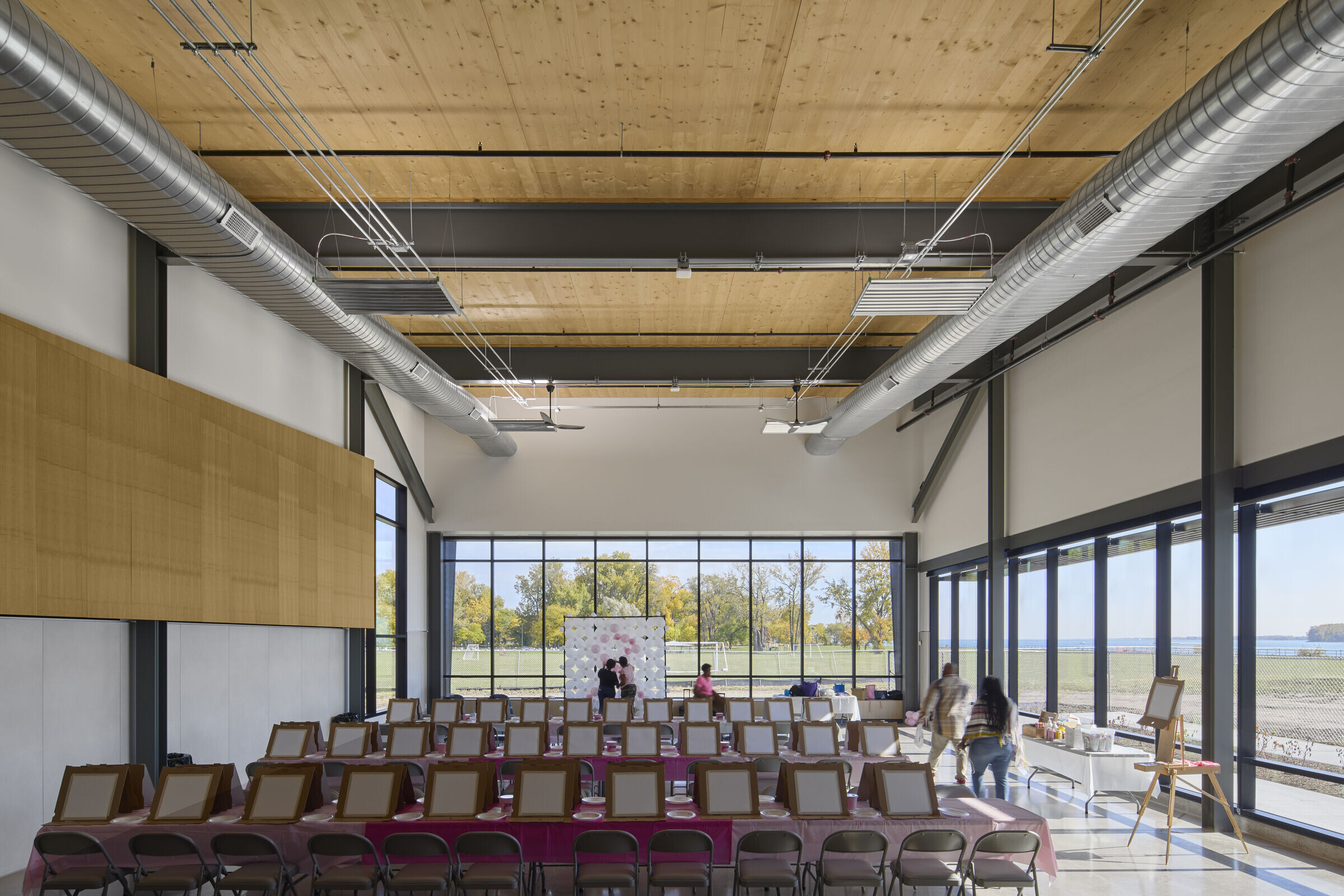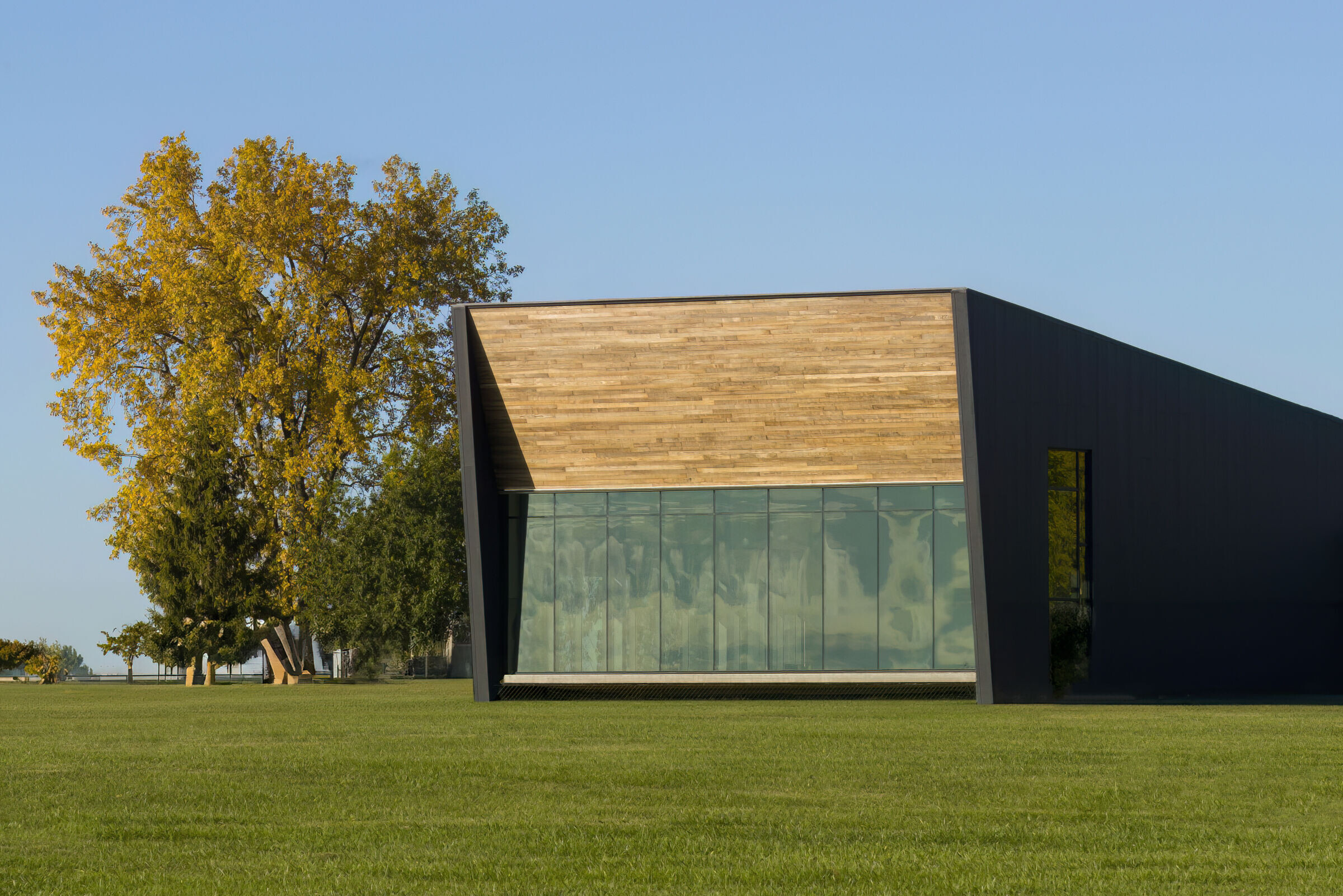The new A.B. Ford Park Community Center (formerly Lenox Center) marks a significant milestone as Detroit’s first climate-resilient public facility. Set within expansive parkland, the center enhances community access to the waterfront while boosting local economic opportunities. The project embodies the vibrant cultural heritage of the Jefferson-Chalmers neighborhood, reflecting residents' values through sustainable and resilient design.

Design for resiliency
Constructed outside the floodplain, the center serves dual purposes as both a vibrant community hub and an emergency resilience facility. It is equipped to provide residents with essential shelter, renewable energy, and supplies during climate emergencies. The integration of solar panels underscores its commitment to renewable energy, while its pioneering use of sustainably sourced cross laminated timber (CLT)—including Detroit’s first-ever CLT roof deck—promotes wellness and environmental responsibility.
The facility features adaptable spaces designed to host indoor youth sports, community events, educational programs, and quiet learning environments. Its thoughtful layout fosters community cohesion and prioritizes occupant comfort and environmental sustainability, creating an inclusive and wellness-oriented atmosphere.

Community-driven planning approach
Led by INFORM Studio, the project was shaped through robust community engagement and consensus-building processes. Close collaboration with city officials, stakeholders, and local residents provided a foundation for meaningful dialogue. Community surveys informed two refined proposals, allowing residents to democratically select their preferred plan. This approach ensured genuine local ownership and alignment with neighborhood aspirations.
Advancing sustainable construction
As Detroit’s first completed CLT building, the A.B. Ford Park Community Center sets a new benchmark for sustainable urban construction. Demonstrating the viability of mass timber as a renewable, environmentally friendly building material, the center positions itself as a model for future developments, promoting resiliency, ecological stewardship, and community well-being.



























